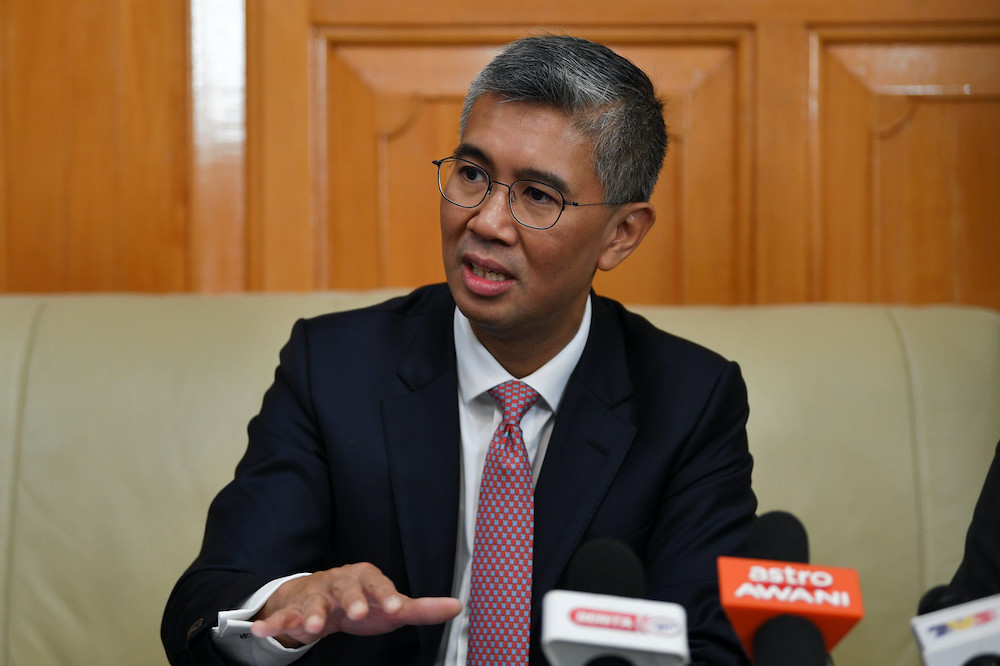KUALA LUMPUR, Nov 28 — The implementation of a windfall tax on glove companies that have benefited from the pandemic is a non-consistent policy which will a send a wrong signal to investors and shoo them away from investing in the country, said Finance Minister Datuk Seri Tengku Zafrul Abdul Aziz.
He said should the windfall tax be imposed, it would make investors think twice before investing in the country, or even opt to invest in the neighbouring countries like Vietnam and Singapore which do not impose such taxes.
“You can (impose such tax), but you might send a wrong signal, especially for an open economy like Malaysia,” he told Bernama after appearing as a guest on Bernama TV’s “Ruang Bicara” programme titled “Budget 2021 the Rakyat’s Victory” here today.
Tengku Zafrul said policies have to be for the long term and not based on short-term gains.
Former youth and sports minister Syed Saddiq Abdul Rahman has been urging the government to impose a windfall tax on glove makers who he claimed had made huge profits amid the Covid-19 pandemic.
Meanwhile, Tengku Zafrul expressed optimism that Malaysia’s 2021 gross domestic product (GDP) would grow within the range of 6.5 per cent to 7.5 per cent as projected by the government.
He said the 2021 GDP forecast is based on various assumptions, such as the pick up in economic demand, as well as the Covid-19 vaccine that is widely expected to be available in the first quarter of 2021 (Q1 2021) which would have a positive spillover effect on Malaysia.
“I am optimistic that the GDP for 2021 will fall within the range of 6.5 per cent to 7.5 per cent, and I am not alone, this is not my projection, but the projection of the Finance Ministry and Bank Negara Malaysia.
“And our forecast is in line with those made by the International Monetary Fund, World Bank, Asian Development Bank and other rating agencies, which falls within the range of six to eight per cent,” he said.
To achieve the growth target next year, Tengku Zafrul noted that the most important thing to do is to execute the policies well.
On GDP projection for Q4 2020, Tengku Zafrul, nonetheless, admitted that there will be an adverse impact, especially on the retail and tourism sectors following the reinstatement of the conditional movement control order (CMCO) in Kuala Lumpur and Selangor, including the Klang Valley since mid-October.
The two states, according to the Finance Minister, contributed around 40 per cent of the country’s total GDP.
“But it will not (be) as bad as the movement control order (MCO) in March where the daily impact cost about RM2.0 billion to RM2.4 billion a day, while during CMCO, the daily impact is about RM300 million as economic activities, manufacturing and exports still operate as usual,” he said.
The country’s economy contracted 17.1 per cent in the second quarter as it took the brunt of the MCO but improved to -2.7 per cent in the third quarter of 2020 as businesses reopened in batches.
The country’s economy is expected to contract 4.5 per cent in 2020. — Bernama


















